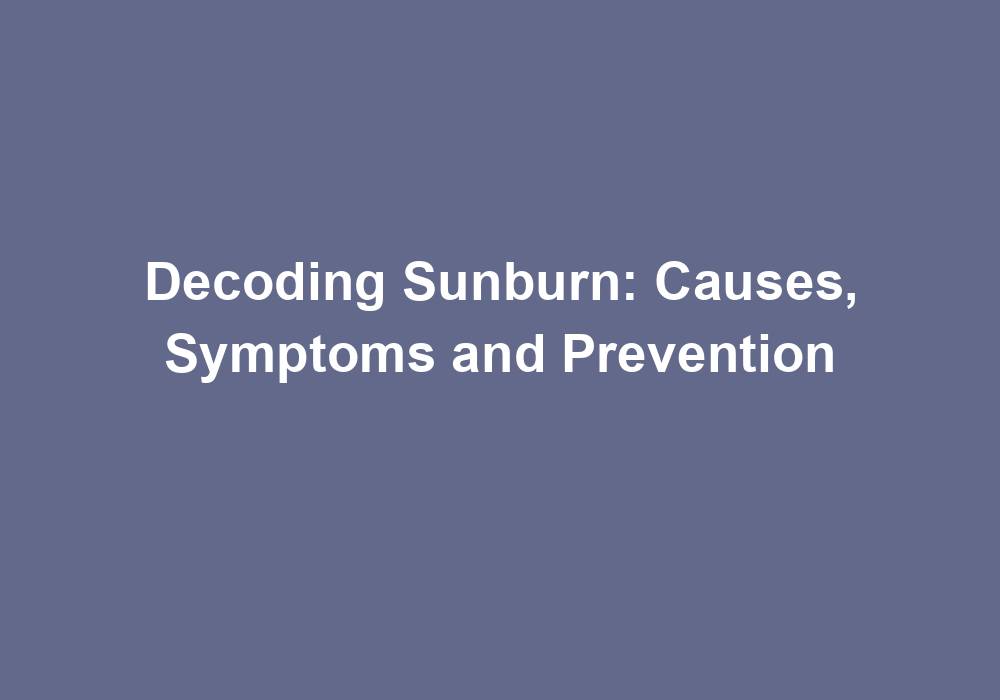Teleconsultation – 2023-07-14 19:26
What is a sunburn?
Dear Patient,
I am Professor P.S., a board-certified dermatologist with expertise in clinical dermatology, dermatooncology, dermatopathology and dermatologic imaging. Today I am addressing your question: “What is a sunburn?”
A sunburn is a visible reaction of the skin’s exposure to ultraviolet (UV) radiation, the invisible rays that are part of sunlight. This can occur within 15 minutes of being in the sun but the redness and discomfort might not be noticed until a few hours later. Severe sunburn can result in blistering of the skin and requires medical attention. Long-term exposure to UV radiation can cause numerous health issues such as skin cancer, cataracts and premature aging of the skin.
Sunburn is an inflammatory response that causes blood vessels to dilate and leukocytes to migrate to the site of the burn. This response manifests as redness, swelling and pain at the skin’s surface. UV radiation damages the DNA in the skin cells, causing them to die. The body then replaces these dead cells with new ones, which can cause the skin to peel.
If you’ve been sunburned, there are several steps you can take to help alleviate your symptoms:
- Cool the skin: Apply a damp cloth to your skin or take a cool bath or shower. Applying a soothing lotion or aloe vera can also help to cool the skin and provide some relief.
- Stay hydrated: Sunburn can cause fluid loss through the skin. Drink extra water, juice, or sports drinks to replace lost fluids and prevent dehydration.
- Protect your skin: Until your sunburn heals, protect your skin from further sun exposure by wearing clothing that covers the burned areas or staying in the shade.
- Over-the-counter medication: Non-prescription pain relievers like ibuprofen or aspirin can help with the discomfort and decrease inflammation. Topical steroids can also be used to reduce inflammation in severe cases of sunburn.
- Consult a medical professional: If your sunburn is severe (blisters cover a large portion of your body, you have a high fever, extreme pain, confusion, nausea or chills), seek medical attention immediately.
Remember, the best way to deal with sunburn is to prevent it in the first place. Apply a broad-spectrum sunscreen with an SPF of at least 30 on all exposed skin, wear protective clothing and seek shade during the sun’s peak hours (between 10 a.m. and 4 p.m.). Regularly check your skin for any suspicious changes and consult with a dermatologist if you notice anything unusual.
I trust this information will be helpful. If you have further questions, please do not hesitate to contact me.
THIS IS A RESEARCH PROJECT
IT IS NOT A MEDICAL ADVICE
Professor P.S.
Glossary:
- Ultraviolet (UV) radiation: Invisible rays that are part of the energy that comes from the sun. UV radiation can burn the skin and damage the eyes.
- Leukocytes: White blood cells that are involved in protecting the body against both infectious disease and foreign invaders.
- Dehydration: A harmful reduction in the amount of water in the body.
- Inflammation: A localized physical condition in which part of the body becomes reddened, swollen, hot, and often painful, especially as a reaction to injury or infection.
- Broad-spectrum sunscreen: Sunscreen that can protect the skin from both UVA and UVB rays.
- SPF (Sun Protection Factor): A measure of how well a sunscreen will protect skin from UVB rays, the kind of radiation that causes sunburn, damages skin, and can contribute to skin cancer.
General Data Protection Regulation (GDPR)
Kindly take note that this is a research project conducted by Michael Truppe, MD and should not be considered as medical advice. All rights reserved © 2023 Michael Truppe, MD.
EURODOC Telemedizin ForschungsgesellschaftmbH
Albertgasse 3/6, 1080 Wien
Tel: +43 1 408 95 00 66
Email: cloud@smile.wien
Web: https://smile.wien


Leave a Reply